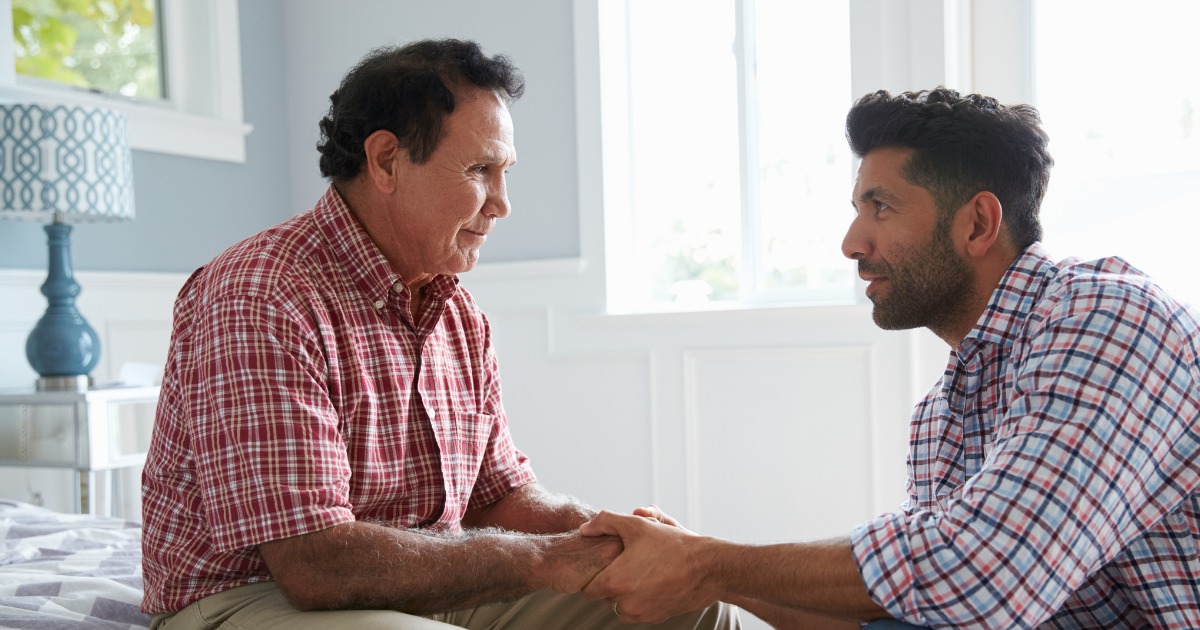Dementia is a complex illness that can be difficult to understand, especially if you don’t have experience with it yourself. This condition affects how people think, feel, and behave, causing them to act in ways that are out of character. For many people dealing with dementia, these behaviors can be frustrating and heartbreaking as they see their loved ones slipping away from them.
If you’ve ever said to yourself, “I wish I knew more about dementia when my grandparents were alive, ” you are certainly not alone. Unfortunately, this condition can make you feel helpless and confused as you watch your loved one go through the different stages of dementia and struggle with memory loss and other issues. But while dementia may seem like an insurmountable challenge, there are steps that we can all take to better support those who are living with this condition.
Becoming more educated about dementia is critical for finding ways to connect and communicate effectively with someone dealing with it. In addition, knowing how dementia impacts memory, behavior, interactions, and communication can help us create more meaningful relationships with those affected.
Today’s blog will discuss an intro to dementia, which will be especially helpful for new caregivers or ones possibly taking over this role. We’ll explore this condition in more depth in future posts and offer specific tips for caregivers. But, for now, let’s start with the basics.
What is Dementia?
Dementia is an umbrella term for over 100 different conditions affecting the brain, resulting in thinking, feeling, and behavior changes. This results in difficulties in carrying out everyday activities and can be extremely confusing for both the person affected and their loved ones.
Some of the most common causes of dementia include Alzheimer’s disease, Parkinson’s, Lewy Body, frontotemporal, and vascular dementia.
What Are The Early Signs of Dementia?
The early signs of dementia will vary depending on the type of dementia someone has. However, some general warning signs may signal that something is wrong, such as:
– Memory loss
– Difficulty communicating
– Trouble with planning and problem solving
– Changes in mood or behavior
If you notice any of these changes in yourself or a loved one, it’s essential to see a doctor right away. They will be able to rule out other potential causes and give you a better idea of what might be going on.
Certified Dementia Specialist Tonya Thomas says, “everybody forgets what they go into the kitchen sooner or later, but if you are in the kitchen, and you forget how to get to the bedroom, or if you are out, at the grocery store and you’ve forgotten how to get back home. Those are big issues”.
Deanna Sellars, owner of Hands at Home, agrees, “generally, people after they diagnose the family members will look back and say, oh, yeah, we did see those things we just didn’t know at the time that it was an indication of dementia.”
How Does Dementia Progress?
Dementia is a progressive condition, which means that it will typically get worse over time. The rate at which dementia progresses will vary from person to person, but the general trend is that symptoms will slowly become more severe as the condition worsens.
In the early stages of dementia, symptoms may be mild and only cause minor disruptions to daily life. However, as dementia progresses, symptoms will become more severe and can eventually lead to complete dependence on caregivers.
The progression of dementia can be broken down into three general stages:
– Mild dementia: In this stage, symptoms are mild and only cause minor disruptions to daily life. This is the stage when many people first begin to notice warning signs.
– Moderate dementia: In this stage, symptoms become more severe and start to interfere with daily life. This is when many people are diagnosed with dementia.
– Severe dementia: In this stage, symptoms are severe, and the person affected cannot care for themselves. They will require around-the-clock assistance from caregivers.
What Causes Dementia?
The cause of dementia will depend on the type they have for example, Alzheimer’s disease is caused by a build-up of plaques and tangles in the brain. Parkinson’s disease, on the other hand, is caused by the death of nerve cells in the brain.
In some cases, dementia can be caused by a combination of factors. For example, someone with vascular dementia may have underlying health conditions that contribute to the condition.
It’s important to note that dementia is not a normal part of aging. While the risk of developing dementia increases with age, it is not inevitable.
How Does Dementia Affect Everyday Activities?
Dementia can have a significant impact on everyday activities. As it progresses, the person affected will eventually lose the ability to care for themselves and require assistance from caregivers.
Tonya mentions that a change of reasoning often influences choices made by your aging loved one. For example, they may not shower because they don’t want to be cold or are convinced they took one recently, even if it’s been days. Loss or reduced sense of smell can also influence decision-making related to hygiene.
Forgetfulness can also influence eating habits. For example, someone with dementia may forget if they’ve eaten and overeat or become malnourished.
What’s often difficult for the caregiver is the senior may appear very confident with their answers because they don’t want you to know they’ve forgotten. This overconfidence can be especially dangerous when potential strangers come into their house or call them.
How Will This Change Your Relationship With Your Aging Loved One?
It’s important to be prepared for this change and to understand that your loved one may not be able to do things they used to do.
This can be difficult to accept, but it’s important to remember that your loved one is still the same person, even if their abilities have changed.
It’s also important to understand that dementia can cause changes in behavior but doesn’t change their need to be loved and cared for.
Tonya says, “You have to remember who that person is. And understand this is not them. This is the disease and will always be the disease. It’s not that person.” So continue to treat them with dignity and patience.
How Can I Manage the Symptoms of Dementia?
There is no one-size-fits-all answer to this question, as the best way to manage dementia symptoms will depend on the individual and the severity of their condition. However, some general things can be done to help manage dementia symptoms.
Medication can be a vital part of managing dementia symptoms. However, so can exercising the brain – including using crossword puzzles or watching game shows. Tonya says, “you have to work your brain, same as your body. You work it, or you lose it.”
Caregivers can also manage these symptoms by providing continuous support and assistance. However, as a caregiver, remember to take care of yourself to help prevent burnout.
If you’re a caregiver and need assistance taking care of a loved one with dementia, give us a call at 802-536-1792 or email info@HandsAtHomeCS.com.



